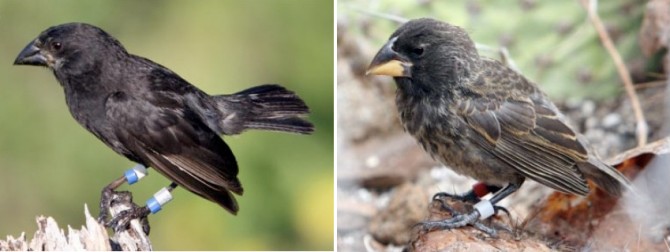Some of you won't understand this. And even more won't believe it. This aint for yall

On one of the Galapagos islands whose finches shaped the theories of a young Charles Darwin, biologists have witnessed that elusive moment when a single species splits in two.
In many ways, the split followed predictable patterns, requiring a hybrid newcomer who’d already taken baby steps down a new evolutionary path. But playing an unexpected part was chance, and the newcomer singing his own special song.
This miniature evolutionary saga is described in a paper published Monday in the Proceedings of the National Academy of Sciences. It’s authored by Peter and Rosemary Grant, a husband-and-wife team who have spent much of the last 36 years studying a group of bird species known collectively as Darwin’s finches.
http://www.wired.com/wiredscience/2009/11/speciation-in-action/

On one of the Galapagos islands whose finches shaped the theories of a young Charles Darwin, biologists have witnessed that elusive moment when a single species splits in two.
In many ways, the split followed predictable patterns, requiring a hybrid newcomer who’d already taken baby steps down a new evolutionary path. But playing an unexpected part was chance, and the newcomer singing his own special song.
This miniature evolutionary saga is described in a paper published Monday in the Proceedings of the National Academy of Sciences. It’s authored by Peter and Rosemary Grant, a husband-and-wife team who have spent much of the last 36 years studying a group of bird species known collectively as Darwin’s finches.
http://www.wired.com/wiredscience/2009/11/speciation-in-action/



 tell me anything
tell me anything